第11章 CHAPTER II.(3)
The vegetable ivory nuts are then soaked in water for about twenty-four hours, after which they are heaped in large piles upon a fire until nearly dry, and thoroughly steamed; this process renders them sufficiently tractable to be reduced by pounding in a heavy mortar. Thus, broken into small pieces they somewhat resemble half-roasted chestnuts, and in this state they form excellent food for cattle. The useful dome palm is the chief support of the desert Arabs when in times of drought and scarcity the supply of corn has failed. At this season (June) there was not a blade of even the withered grass of the desert oases. Our donkeys lived exclusively upon the dhurra (Sorghum Egyptiaca)that we carried with us, and the camels required a daily supply of corn in addition to the dry twigs and bushes that formed their dusty food. The margin of the river was miserable and uninviting;the trees and bushes were entirely leafless from the intense heat, as are the trees in England during winter. The only shade was afforded by the evergreen dome palms; nevertheless, the Arabs occupied the banks at intervals of three or four miles, wherever a pool of water in some deep bend of the dried river's bed offered an attraction; in such places were Arab villages or camps, of the usual mat tents formed of the dome palm leaves.
Many pools were of considerable size and of great depth. In flood-time a tremendous torrent sweeps down the course of the Atbara, and the sudden bends of the river are hollowed out by the force of the stream to a depth of twenty or thirty feet below the level of the bed. Accordingly these holes become reservoirs of water when the river is otherwise exhausted. In such asylums all the usual inhabitants of this large river are crowded together in a comparatively narrow space. Although these pools vary in size, from only a few hundred yards to a mile in length, they are positively full of life; huge fish, crocodiles of immense size, turtles, and occasionally hippopotami, consort together in close and unwished-for proximity.
The animals of the desert--gazelles, hyaenas, and wild asses--are compelled to resort to these crowded drinking-places, occupied by the flocks of the Arabs equally with the timid beasts of the chase. The birds that during the cooler months would wander free throughout the country, are now collected in vast numbers along the margin of the exhausted river; innumerable doves, varying in species, throng the trees and seek the shade of the dome palms;thousands of desert grouse arrive morning and evening to drink and to depart; while birds in multitudes, of lovely plumage, escape from the burning desert, and colonize the poor but welcome bushes that fringe the Atbara river.
The heat was intense. As we travelled along the margin of the Atbara, and felt with the suffering animals the exhaustion of the clinmate, I acknowledged the grandeur of the Nile that could overcome the absorption of such thirsty sands, and the evaporation caused by the burning atmosphere of Nubia. For nearly 1,200 miles from the junction of the Atbara with the parent stream to the Mediterranean, not one streamlet joined the mysterious river, neither one drop of rain ruffled its waters, unless a rare thunder-shower, as a curious phenomenon, startled the Arabs as they travelled along the desert. Nevertheless the Nile overcame its enemies, while the Atbara shrank to a skeleton, bare and exhausted, reduced to a few pools that lay like blotches along the broad surface of glowing sand.
Notwithstanding the overpowering sun, there were certain advantages to the traveller at this season; it was unnecessary to carry a large supply of water, as it could be obtained at intervals of a few miles. There was an indescribable delight in the cool night, when, in the perfect certainty of fine weather, we could rest in the open air with the clear bright starlit sky above us. There were no mosquitoes, neither were there any of the insect plagues of the tropics; the air was too dry for the gnat tribe, and the moment of sunset was the signal for perfect enjoyment, free from the usual drawbacks of African travel. As the river pools were the only drinking-places for birds and game, the gun supplied not only my own party, but I had much to give away to the Arabs in exchange for goat's milk, the meal of the dome nuts, &c. Gazelles were exceedingly numerous, but shy, and so difficult to approach that they required most careful stalking. At this season of intense heat they drank twice a day--at about an hour after sunrise, and half an hour before sunset.
The great comfort of travelling along the bank of the river in a desert country is the perfect freedom, as a continual supply of water enables the explorer to rest at his leisure in any attractive spot where game is plentiful, or where the natural features of the country invite investigation. We accordingly halted, after some days' journey, at a spot named Collodabad, where an angle of the river had left a deep pool of about a mile in length: this was the largest sheet of water that we had seen throughout the course of the Atbara. A number of Arabs had congregated at this spot with their flocks and herds; the total absence of verdure had reduced the animals to extreme leanness, as the goats gathered their scanty sustenance from the seed-pods of the mimosas, which were shaken down to the expectant flocks by the Arab boys, with long hooked poles. These seeds were extremely oily, and resembled linseed, but the rank flavour was disagreeable and acrid.